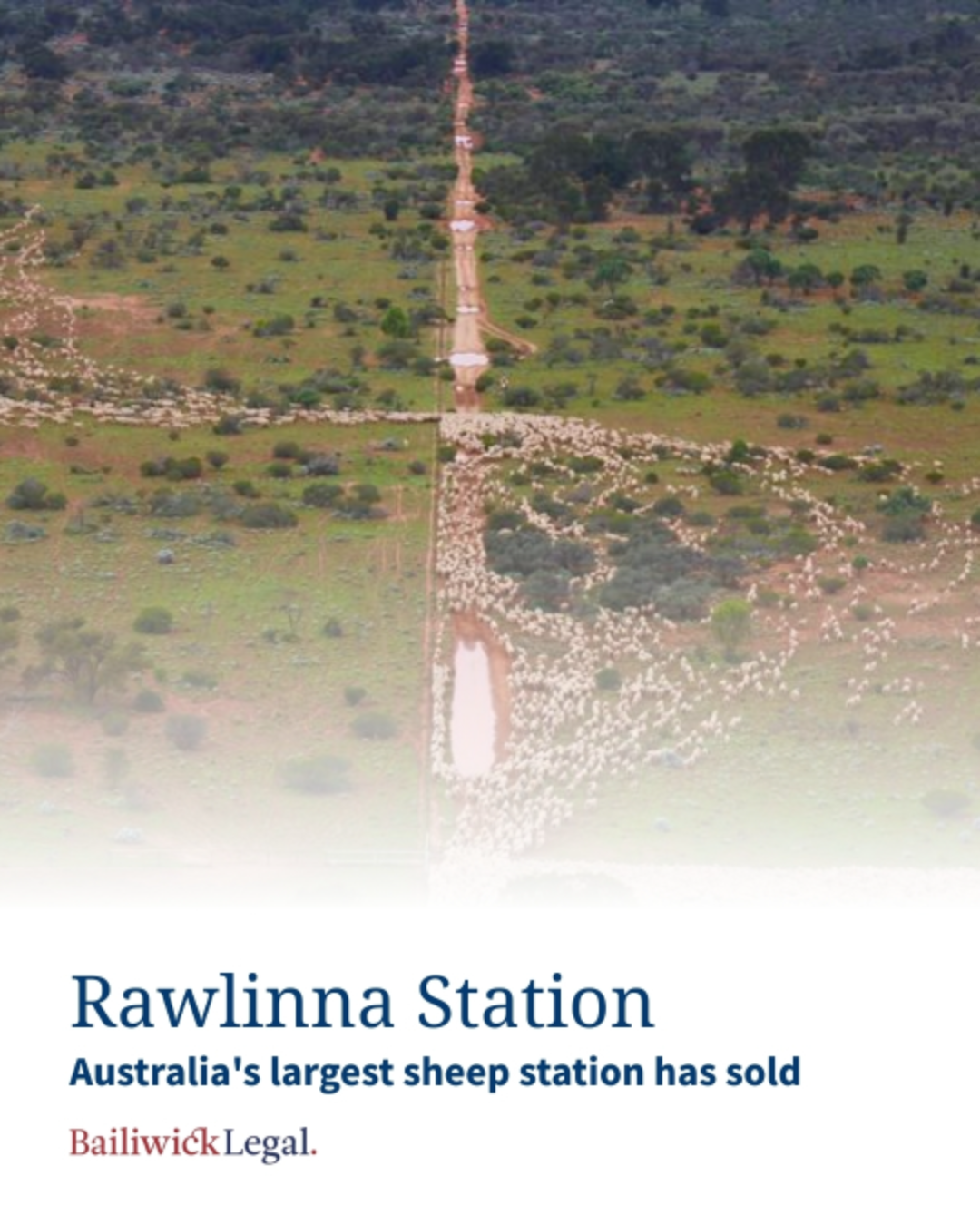Five things to consider when hiring a new employee
February 19, 2026
Author name
Hiring employees is an important part of growing your business, bringing new skills and perspectives into the workplace. However the hiring process can be overwhelming. Ensuring that you have started the employment relationship with thorough and accurate knowledge of your responsibilities, and having all the correct documentation in place, can be daunting. As part of our Bailiwick Workplace employers’ series, we will talk you through some of the legal obligations that you should know when engaging your new employee.
1. Your Legal Obligations
Do you know where your legal obligations stem from? Is the employment relationship covered by the Fair Work Act or state legislation? Will your employee be covered by an award or enterprise agreement? It is crucial that you know what your employment obligations are and where these arise from, and ensure that you are up to date with any recent changes.
2. Permanent, casual or contractor?
In deciding to take on an employee, you will have considered the capacity in which to engage them: full time or part time, permanent, casual or fixed term or for a specified task.
However, just because an employee is called a ‘casual’, even in a written employment contract, this is not conclusive of their status. There are a number of legal authorities which state that even though in the contract of employment the employee was described as a ‘casual’, and paid as such, the employee was entitled to the benefits of a permanent employee.
Similarly, with contractors there can often be a fine line as to whether they are contractor or employee. Again, a written contract may not be definitive of the status of a contractor (versus an employee). The ATO has a useful video guide to help you make this distinction: https://www.ato.gov.au/Calculators-and-tools/Employee-or-contractor/.
If classified incorrectly unpaid entitlements may become payable. As every case is different, employers that are unsure should always seek legal advice.
3. Paperwork
Do you have the necessary paperwork in place? Has this been provided to your employee, and signed and returned?
As well as your employee’s taxation and bank details, it is important to consider what other paperwork should be prepared.
An employment contract can be important in mitigating your risk as an employer and ensuring both parties are clear on the terms of employment, an issue we will cover in more detail in a later article.
Other documents that you should consider include: an induction manual, workplace policies and procedures, a copy of the fair work statement (if applicable), and a copy of any applicable award or agreement. Have you taken copies of identification, qualification certificates, driver’s license and visa details (if relevant)?
Please note that as of 1 July 2019, unless an exemption applies, all employers are required to have joined the Single Touch Payroll scheme. For more information see: https://www.ato.gov.au/Business/Single-Touch-Payroll/
4. Training
With greater focus than ever on workplace safety, and recent increases in fines, it is essential that every employer considers their workplace safety and health obligation for every new (as well as existing) employee.
This includes the requirement to train employees appropriately. Section 19 of the Occupational Safety and Health Act 1984 (WA) (OS&H Act) states:
“(1) An employer shall, so far as is practicable, provide and maintain a working environment in which the employees of the employer (the employees) are not exposed to hazards and in particular, but without limiting the generality of the foregoing, an employer shall —
…
(b) provide such information, instruction, and training to, and supervision of, the employees as is necessary to enable them to perform their work in such a manner that they are not exposed to hazards;”
In circumstances where an employer is grossly negligent in breaching this requirement, the OS&H Act provides for fines of up to $550,00.00 for an individual, as well as 5 years imprisonment, and $2,700,000.00 for a body corporate (increased last year from $500,000.00 for body corporates).
Please note that there will be further significant developments in this area if the Western Australian Model Work Health and Safety Bill (WHS Bill) is passed in parliament this year.
Employees should receive ongoing information about health and safety matters affecting their work. Some things for employers to think about when bringing on a new employee are:
- Has your new employee:
- been given a tour of the premises and adequate induction?
- been given access to workplace safety policies and guidelines?
- received training on all equipment required to perform their role?
- Are safety instructions available for all equipment?
- Does your employee require any supervision?
- Is your employee aware of hazards or potential hazards?
- Is a safety briefing required, and how often?
We recommend regular training needs analysis with each employee, which should include consultation with the employee about their training needs. It is important to document all training and meetings, and to retain this documentation to protect your business.
5. The end of the relationship
Although you have just taken on a new employee, it is important to think about what happens at the other end.
You would require a crystal ball to see when and under what circumstances the employment relationship will end, however, from a risk management perspective, it is important to consider the following matters at the beginning of the relationship:
- Will the employee be privy to confidential or sensitive information that may damage my business if disclosed?
- Do I need to put measures in place to protect my client base?
- How much notice will I need to find a replacement, and should I allow the employee to be paid in lieu of this period?
These are matters that can be dealt with in a written contract, and if handled correctly, may save a lot of pain (and money arguing the point) at a later date.
There are many resources available to assist you when taking on a new employee, and we will be happy to have a conversation with you if you have any questions.
TIP: The Australian Government’s ‘Business’ website provides a helpful checklist to assist small businesses to learn about their employee obligations: https://www.business.gov.au/people/hiring/taking-on-an-employee-checklist
If you would like further information in relation to how the above matters may affect your business, please contact us on (08) 9321 5451.
Please also subscribe to our newsletter to be alerted to further articles in this series. Next time we will be looking at employment contracts and what should be included.
For further information about our legal services, please visit our website: https://www.bailiwicklegal.com.au.
The above information is a summary and overview of the matters discussed. This publication does not constitute legal advice and you should seek legal or other professional advice before acting or relying on any of the content.

Bailiwick Legal has been honoured to support Forever Wild over the past few years as they delivered one of the most significant conservation land acquisition programs undertaken in Western Australia. Our team assisted Forever Wild with the strategic purchase of four pastoral stations, Narndee , Boodanoo , Meeline and Challa , transactions that now connect three State Reserves and protect more than 12,000 square kilometres of land. To put that scale into perspective, the combined area is approximately five times the size of the ACT and nearly one-fifth the size of Tasmania . Navigating complexity at scale These were not straightforward property transactions. Each acquisition involved: Multiple pastoral leases Layered regulatory and approval pathways Significant operational and on-ground assets Numerous stakeholders across government, industry and land management Our role was to guide Forever Wild through this complexity with clarity, precision and confidence, ensuring each transaction progressed efficiently while managing risk and safeguarding long-term objectives. “ Forever Wild is creating a world-leading model for nature funding that demonstrates we can manage viable, working pastoral stations whilst also restoring and protecting local ecological flora and fauna, and engaging and supporting Indigenous people and local communities. Complex & challenging, but this initiative could literally change the world .” Jessica Brunner - Director, Bailiwick Legal A growing and evolving legal landscape Large-scale conservation acquisitions sit within an emerging and increasingly complex legal field , intersecting land tenure, pastoral regulation, environmental frameworks and commercial considerations. These matters demand a deep understanding of both the legal mechanics and the practical realities of operating in regional and remote Australia. Our team’s experience in agribusiness, pastoral land transactions and regulatory approvals allowed us to support Forever Wild at every stage, from strategic structuring through to completion. Proud to support leadership in nature finance Forever Wild is widely recognised as an industry leader and a steadfast advocate for nature finance initiatives , helping pave the way for greater accessibility and innovation in conservation funding and land stewardship. We are proud to have contributed our relationships, expertise and practical legal insight to help Forever Wild achieve its vision, and to have played a role, however small, in shaping a groundbreaking future for conservation in Australia. At Bailiwick Legal, we value the opportunity to work alongside organisations that are thinking long-term, acting boldly, and creating outcomes that extend well beyond the transaction itself. For assistance with all of your agribusiness needs, contact Bailiwick Legal on 08 9321 5451 or email office@bailiwicklegal.com.au For further information about our legal services, please visit our website: https://www.bailiwicklegal.com.au The above information is a summary and overview of the matters discussed. This publication does not constitute legal advice and you should seek legal or other professional advice before acting or relying on any of the content.

Bailiwick Legal Advises on Landmark Acquisition of Rawlinna Station by Consolidated Pastoral Company
Bailiwick Legal is proud to have acted for Consolidated Pastoral Company (CPC) in its successful acquisition of Rawlinna Station , Australia’s largest sheep station, located on the remote Nullarbor Plain in Western Australia. Spanning over 1 million hectares and running approximately 30,000 sheep , Rawlinna is an iconic pastoral asset with a rich legacy, having been held by the MacLachlan family’s Jumbuck Pastoral Company since its establishment in 1962. The sale marks the first change of ownership in over six decades and was finalised following formal approval from the Western Australian Government for the transfer of the pastoral leases. This transaction involved navigating: The transfer of three separate pastoral leases Coordination across multiple vendor entities Consideration of livestock and operating assets Fulfilment of regulatory and compliance requirements, including WA lease approval processes Bailiwick Legal is a boutique agricultural and regional law firm , proudly based in Perth and Bridgetown, Western Australia. Our role in this acquisition demonstrates that deep sector knowledge, local insight, and personalised legal support are crucial for agribusiness clients managing complex, high-value transactions. Our team, led by our regionally-based solicitor, Matilda Lloyd, provided end-to-end legal and strategic support, including: Due diligence on land tenure and operating assets Contract negotiation and preparation Advice on regulatory approvals and compliance Strategic coordination with CPC’s internal and external stakeholders to ensure a smooth and timely settlement We are honoured to have supported CPC in this milestone acquisition and look forward to watching Rawlinna’s next chapter unfolds. At Bailiwick Legal, we believe that regional expertise, deep industry knowledge, and relationship-based service remain essential to agribusiness success, no matter the scale. Congratulations to all parties involved, including the MacLachlan family, whose stewardship of Rawlinna leaves a lasting legacy in Australian agriculture. – The Bailiwick Legal Team Working alongside agribusinesses to grow, transition, and thrive . For assistance with all of your agribusiness needs, contact Bailiwick Legal on 08 9321 5451 or email office@bailiwicklegal.com.au By Matilda Lloyd (Associate) For further information about our legal services, please visit our website: https://www.bailiwicklegal.com.au The above information is a summary and overview of the matters discussed. This publication does not constitute legal advice and you should seek legal or other professional advice before acting or relying on any of the content.











